In the ever-evolving world of kitchen appliances, certain innovations have captured the hearts and kitchens of consumers worldwide. One such appliance that has seen a meteoric rise is the panini press. This compact yet versatile gadget has not only added a touch of culinary flair to homes but has also become a key player in the private label market. As we delve into the dynamics of the European and American kitchen appliances markets, it becomes clear that panini presses, produced by private label factories, are not just a trend—they’re a game-changer.
I.IntroductiontotheEuropeanandAmericanKitchenAppliancesMarket
The European and American kitchen appliances market is a bustling arena where innovation meets everyday convenience. From compact appliances designed for single-use to high-tech systems that cater to gourmet chefs, the market offers a wide array of options for consumers. In this dynamic landscape, the panini press has emerged as a star player, combining practicality with the joy of home cooking. Let’s take a closer look at the intricacies of the European and American kitchen appliances market, focusing on the growing trend of private label panini presses.
In Europe, the kitchen appliances market is characterized by a strong emphasis on energy efficiency and sustainability. Consumers are increasingly seeking eco-friendly appliances that not only save money on energy bills but also contribute to a greener planet. The market is also witnessing a surge in demand for smart kitchen gadgets that integrate with home automation systems, offering a seamless and interconnected cooking experience.
American consumers, on the other hand, are known for their preference for innovation and convenience. The market is vast and diverse, with a wide range of products catering to different lifestyles and budgets. From countertop ovens to high-end kitchen appliances, the American kitchen appliances sector is a testament to the country’s culinary prowess and its love for all things modern.
One cannot overlook the role of private label factories in shaping the landscape of these markets. These factories, often based in countries with a strong manufacturing base, such as China or Vietnam, play a crucial part in producing high-quality, cost-effective kitchen appliances that are tailored to the specific needs of retailers and brand owners.
In Europe, the kitchen appliances market is marked by a variety of regional preferences. For instance, the French are fond of their coffee machines and convection ovens, while the Germans appreciate their efficient dishwashers and induction cooktops. The Italian market, however, is particularly fascinated by the panini press, a testament to the country’s love for Italian cuisine and its iconic sandwiches.
Similarly, in the United States, regional differences play a significant role in shaping the kitchen appliances market. The West Coast is known for its health-conscious consumers who prefer appliances that support healthy cooking methods, such as air fryers and sous vide machines. The South, on the other hand, has a penchant for large kitchen appliances that can handle large family gatherings, like commercial-grade ranges and grills.
The rise of the panini press as a private label product is not just a trend but a strategic move for many retailers and brand owners. These presses are versatile, easy to use, and can be customized with various features to cater to specific consumer needs. Whether it’s a sleek design for a modern kitchen or a durable build for a family home, private label panini presses offer a wide range of options.
In Europe, private label panini presses are often associated with premium brands that want to offer their customers a high-quality yet affordable option. The market is also seeing an increase in eco-friendly private label presses, which are made from sustainable materials and consume less energy.
In the United States, private label panini presses are popular among discount retailers and department stores looking to attract budget-conscious consumers. These presses often come with innovative features, such as adjustable heat settings and non-stick surfaces, making them a go-to choice for those who want a reliable appliance without breaking the bank.
As the kitchen appliances market continues to evolve, private label factories are playing a pivotal role in keeping up with the latest trends and consumer demands. These factories are not just manufacturers; they are partners in innovation, offering customized solutions that align with the brand identity and customer expectations of their clients.
In conclusion, the European and American kitchen appliances market is a complex and ever-changing landscape. With the panini press as a focal point, private label factories are at the forefront of meeting consumer needs with innovative and cost-effective solutions. Whether it’s in Europe or the United States, the market for private label panini presses is set to grow, offering both retailers and consumers a world of possibilities in the kitchen.
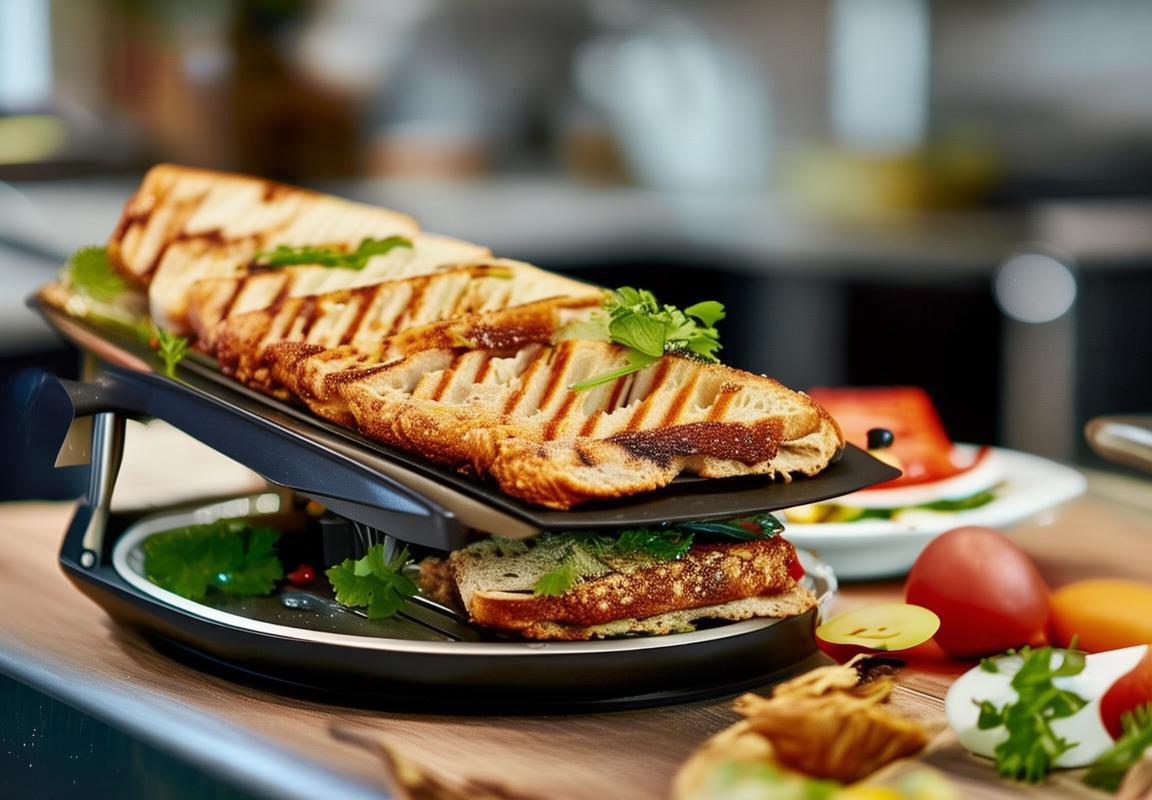
II.TheRiseofthePaniniPress:AHotIteminKitchenAppliances
The panini press has quietly but steadily risen in popularity, becoming a hot item in the kitchen appliances market. Once a niche product, it has now found its way into the hearts and kitchens of many home cooks across Europe and America. Let’s delve into why this compact, versatile appliance has become such a sought-after addition to modern kitchens.
Gone are the days when the panini press was just a tool for making those classic Italian sandwiches. Today, it’s a versatile cooking gadget that can sear, toast, and grill a variety of foods, from sandwiches to vegetables, meats, and even pizzas. Its ability to lock in flavors and create a perfect crust has made it a favorite among food enthusiasts and busy professionals alike.
One of the key factors behind the surge in popularity of panini presses is the growing interest in home cooking and food customization. With the increasing trend of health-conscious eating and the desire for homemade meals, the panini press offers a quick and easy way to prepare delicious, nutritious dishes. It’s a perfect solution for those who want to enjoy a gourmet meal without the need for extensive cooking skills or a large kitchen.
Moreover, the panini press is incredibly user-friendly. Its simple design and straightforward operation make it accessible to people of all ages and cooking abilities. The press itself is compact and takes up minimal counter space, which is a significant advantage in today’s increasingly compact living spaces. It’s also energy-efficient, using less power than other larger appliances, which is an attractive feature for environmentally conscious consumers.
In the European market, the panini press has found a particularly receptive audience. Countries like Italy, France, and Germany have a strong culinary heritage that includes the classic panini sandwich, and the appliance has become a staple in these nations’ kitchens. The rise of the panini press in Europe is also closely tied to the rise of gourmet food culture, where home cooks are constantly seeking new ways to elevate their culinary creations.
Similarly, in the United States, the panini press has gained traction due to its ability to cater to a diverse range of tastes and preferences. The American market has embraced the panini press as a versatile tool for creating not only Italian sandwiches but also a variety of other international dishes. The appliance’s versatility is a testament to the melting pot nature of American cuisine, where ingredients and cooking methods from around the world are blended to create unique and delicious dishes.
Another reason for the panini press’s popularity is its ability to enhance the presentation of food. The press’s ability to give food a professional-looking finish is a big draw for those who enjoy hosting dinner parties or simply want to impress guests with their culinary skills. The visual appeal of a perfectly toasted and grilled panini can be a conversation starter and a centerpiece for any meal.
The panini press has also benefited from the rise of social media and food blogging. As more people share their cooking experiences online, the panini press has become a go-to tool for creating visually stunning food content. From Instagram posts to YouTube tutorials, the appliance has been featured in countless recipes and cooking videos, further boosting its popularity.
In conclusion, the panini press’s rise in the kitchen appliances market is a testament to its versatility, ease of use, and the growing demand for convenient, healthy, and visually appealing home-cooked meals. Whether it’s for a quick lunch or a gourmet dinner, the panini press has proven to be a valuable addition to any kitchen, and its popularity shows no signs of slowing down.
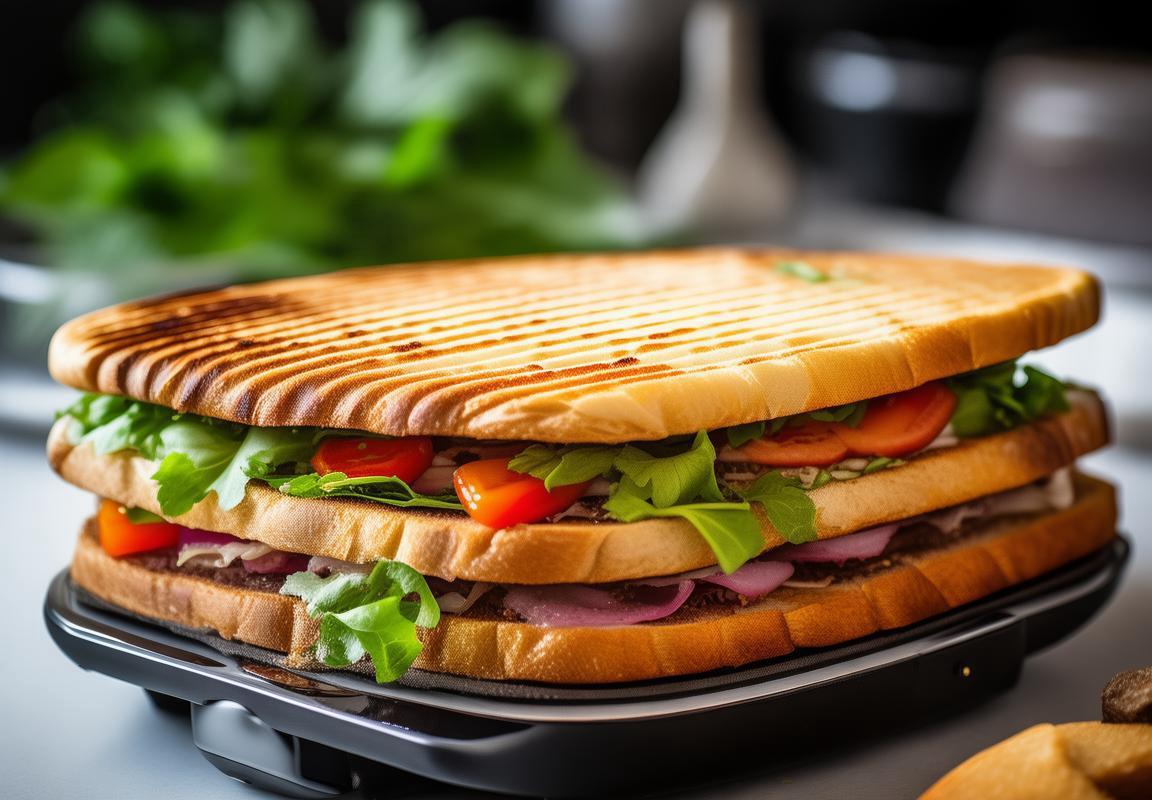
III.TheRoleofPrivateLabelFactoriesintheMarket
Private label factories have become an integral part of the kitchen appliances market, offering customized solutions that cater to the diverse needs of retailers and consumers alike. These factories act as the silent architects behind the branded appliances that grace our kitchens, providing a range of benefits that have contributed to their growing popularity.
In the realm of kitchen appliances, private label factories specialize in manufacturing products to specific design and specification requirements set by retailers or brand owners. This bespoke approach allows for a tailored product that can meet the unique demands of a particular market or consumer segment. Let’s delve into the various aspects of how these factories play a pivotal role in the market.
One of the most significant advantages of private label factories is their flexibility. They can quickly adapt to changing market trends and consumer preferences, ensuring that the appliances they produce remain relevant and appealing. This agility is crucial in a market as dynamic as kitchen appliances, where innovations and advancements are a constant.
Customization is at the heart of what private label factories offer. They can modify existing designs, incorporate new features, or even create entirely new products from scratch. This level of customization not only helps retailers stand out in a crowded market but also allows them to cater to niche markets that may have specific requirements. For instance, a private label factory might produce a line of eco-friendly kitchen appliances that resonate with environmentally conscious consumers.
Quality control is another critical aspect that private label factories excel in. These factories are often equipped with the latest technology and skilled labor to ensure that each appliance meets the highest standards of quality. This not only builds trust with consumers but also reduces the risk of recalls or returns for retailers, saving them time and resources in the long run.
Private label factories also play a role in reducing costs for retailers. By manufacturing products in bulk, these factories can achieve economies of scale, which often translates into lower production costs. This cost savings can be passed on to the consumer, making the appliances more accessible and competitive in the market. Additionally, private label factories can often negotiate better prices for raw materials, further enhancing the cost-effectiveness of the products they produce.
The ability to create exclusive product lines is a major draw for retailers. By working with private label factories, they can develop unique items that are not available elsewhere, giving them a competitive edge. This exclusivity can be a powerful tool in marketing campaigns, as consumers are often drawn to the novelty and perceived value of exclusive products.
Another key role of private label factories is in the area of branding. These factories can assist retailers in creating a brand identity that aligns with their target market. From designing packaging to ensuring consistent product quality, private label factories help retailers establish a strong brand presence that can influence consumer loyalty.
Innovation is fostered through private label factories as well. They often work closely with designers and engineers to develop new products that can be brought to market faster than through traditional channels. This rapid prototyping and testing process allows for a quicker time-to-market, which is essential in the fast-paced kitchen appliances industry.
The environmental impact of manufacturing is also a consideration for many retailers. Private label factories can help by offering sustainable production methods and materials, which appeal to consumers who are increasingly concerned about the ecological footprint of their purchases.
Lastly, private label factories provide a level of scalability that is essential for retailers looking to expand their product offerings. Whether a retailer is entering a new market or simply looking to diversify their inventory, these factories can accommodate varying production volumes, ensuring that the retailer can meet customer demand without overextending their resources.
In summary, private label factories are more than just manufacturers; they are strategic partners that help retailers navigate the complexities of the kitchen appliances market. Their role in customization, quality control, cost reduction, brand development, innovation, sustainability, and scalability makes them indispensable to the success of many retailers and consumers alike.
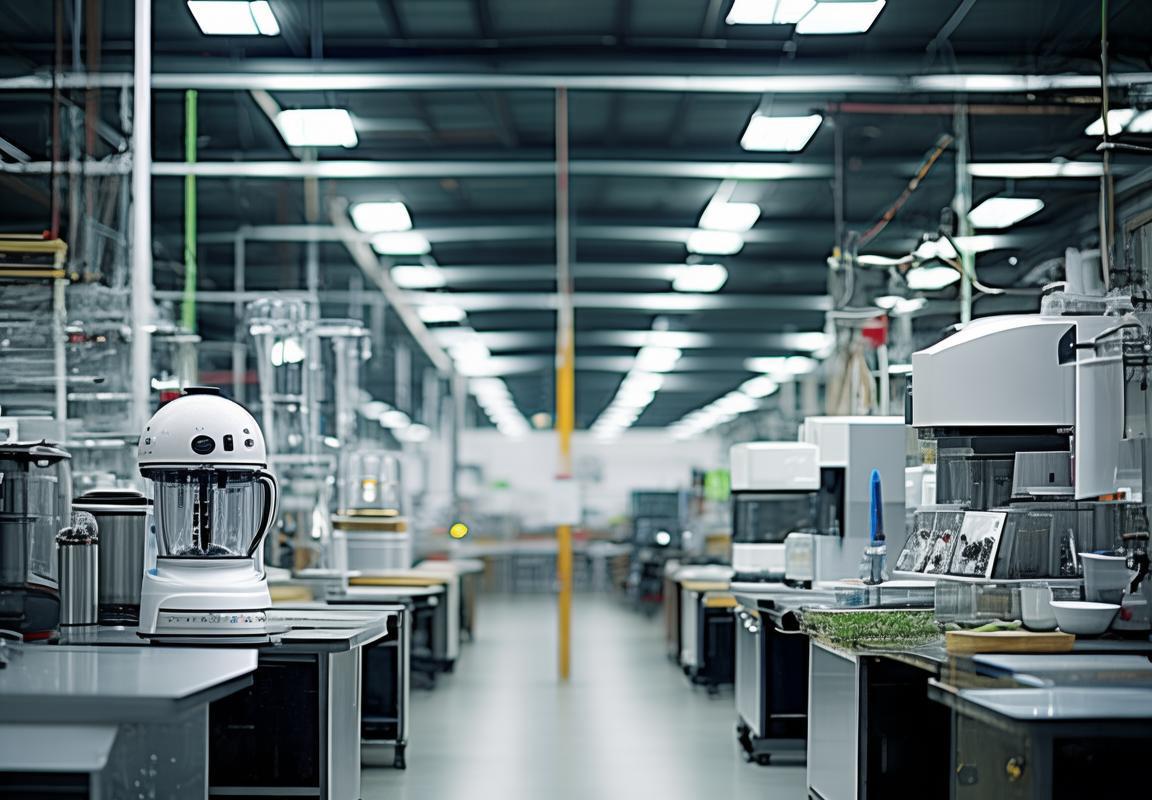
IV.EuropeanKitchenAppliancesMarketDynamics
The European kitchen appliances market has experienced a dynamic transformation over the years, reflecting changing consumer preferences, technological advancements, and evolving market trends. This segment, which includes everything from toasters and blenders to dishwashers and refrigerators, has seen a particular surge in the popularity of certain products, with the panini press emerging as a standout item.
-
Sustainability and Energy Efficiency:Consumers in Europe are increasingly conscious of the environmental impact of their appliances. This has led to a demand for energy-efficient models that not only save on utility bills but also contribute to a greener planet. European manufacturers have responded by offering a range of eco-friendly kitchen appliances that are both sustainable and stylish.
-
Smart Technology Integration:Smart kitchen appliances have gained traction in Europe, as homeowners seek to enhance their cooking experience with the latest technology. Smart ovens, fridges with internet connectivity, and even voice-controlled cookware are becoming more common, offering users the ability to manage their kitchen appliances remotely and with greater precision.
-
Health and Wellness Trends:The rise of health-conscious living has spurred the demand for kitchen appliances that facilitate healthier eating habits. This includes high-quality blenders for smoothies, slow cookers for hearty meals, and sous-vide machines for precise temperature control. The panini press, with its ability to create a variety of healthy, homemade sandwiches, has also benefited from this trend.
-
Customization and Personalization:Consumers in Europe are looking for appliances that not only perform well but also reflect their personal style. This has led to a market where customization is key, with appliances available in a range of colors, finishes, and designs. Private label factories have stepped in to cater to this demand, offering unique and tailored solutions for retailers and brand owners.
-
Regional Variations:The European kitchen appliances market is diverse, with different countries having their own preferences and regulations. For instance, in Northern Europe, there’s a preference for sleek, minimalist designs, while Southern Europe may lean towards more ornate and colorful appliances. Private label factories must navigate these regional nuances to ensure their products resonate with local consumers.
-
Innovation and New Products:Continuous innovation is a hallmark of the European kitchen appliances market. Manufacturers are constantly introducing new products and features that address consumer needs and desires. The panini press, for example, has evolved from a simple sandwich maker to a versatile appliance with various press settings and materials, catering to a wide range of recipes and preferences.
-
E-commerce and Direct-to-Consumer Sales:The rise of e-commerce has changed the landscape of the kitchen appliances market in Europe. Consumers are now able to purchase products directly from manufacturers, bypassing traditional retail channels. This direct-to-consumer model has given rise to new business models and has forced manufacturers to focus on marketing and customer service.
-
Competition and Market Saturation:With the European market being quite mature, competition is fierce. Many manufacturers are vying for market share, leading to a high level of product saturation. Private label factories play a crucial role in this environment by offering unique, high-quality products that can differentiate one retailer or brand from another.
-
Regulatory Compliance:Europe has stringent regulations regarding product safety and energy efficiency. Manufacturers must comply with these regulations to sell their products across the region. Private label factories often have the expertise and resources to ensure that their products meet these standards, making them a reliable partner for retailers.
-
Global Influence and Local Trends:While European consumers are influenced by global trends, they also develop unique preferences that are shaped by local culture and culinary traditions. The panini press, for instance, has become a staple in many European households, reflecting the continent’s love for sandwiches and quick, delicious meals. Private label factories must balance these global influences with local trends to remain competitive.

V.AmericanKitchenAppliancesMarket:UniqueCharacteristics
In the United States, the kitchen appliances market is defined by a unique blend of innovation, consumer preferences, and cultural nuances. Here’s a closer look at some of the distinctive characteristics that shape this dynamic market:
The Emphasis on Convenience and EfficiencyAmerican consumers are known for their appreciation of technology that simplifies daily tasks. This is particularly evident in the kitchen appliances market, where the focus is often on appliances that save time and effort. From smart refrigerators that can help manage inventory to induction cooktops that heat up faster than traditional ranges, the market is flooded with products designed to enhance convenience and efficiency.
The Prevalence of Smart Kitchen TechnologyThe U.S. has been at the forefront of integrating smart technology into everyday appliances. Smart kitchen appliances, such as smart ovens, coffee makers, and even smart toasters, are becoming increasingly popular. These devices offer connectivity, allowing users to control them remotely via smartphones or tablets, and can even provide recipes and cooking tips.
A Strong Focus on Health and WellnessAs health and wellness become more important to consumers, the kitchen appliances market in the U.S. reflects this shift. Appliances like high-end juicers, air fryers, and sous-vide machines are gaining traction as they allow for healthier cooking methods. Additionally, there’s a growing interest in appliances that can help track nutritional information or provide meal prep guidance.
The Influence of Celebrity Chefs and Cooking ShowsCelebrity chefs and popular cooking shows have a significant impact on the American kitchen appliances market. The latest gadgets and tools featured on these platforms can quickly become must-have items. From the KitchenAid stand mixer to the Instant Pot, these endorsements can drive sales and influence consumer preferences.
A Preference for High-End BrandsAmerican consumers often prefer high-end brands for their kitchen appliances. Brands like KitchenAid, Thermador, and Viking are synonymous with quality and durability. These brands cater to a market segment that values craftsmanship and the promise of long-lasting performance.
The Importance of Design and StyleIn the U.S., kitchen appliances are not just functional; they are also a statement of style. Modern kitchen appliances come in a variety of designs, colors, and finishes, allowing consumers to match their appliances to their kitchen decor. This emphasis on aesthetics has led to the rise of sleek, minimalist designs that complement contemporary kitchen aesthetics.
The Demand for Energy-Efficient AppliancesEnergy efficiency is a key concern for American consumers, and it’s reflected in the kitchen appliances market. There’s a growing trend towards energy-efficient models that can help reduce utility bills. The Energy Star label, in particular, is a trusted indicator of an appliance’s energy-saving capabilities.
The Influence of E-commerceE-commerce has revolutionized the way consumers purchase kitchen appliances in the U.S. Online marketplaces provide access to a wide range of products, often at competitive prices. Additionally, the convenience of shopping from home and the ability to read customer reviews have made online shopping a preferred option for many.
The Role of Customer Service and WarrantyIn the American kitchen appliances market, customer service and warranty are crucial factors. Consumers expect reliable support and peace of mind, especially when investing in expensive appliances. Brands that offer excellent customer service and comprehensive warranties often enjoy greater customer loyalty.
The Integration of SustainabilitySustainability is a growing concern in the U.S., and this extends to the kitchen appliances market. There’s an increasing demand for appliances that are not only energy-efficient but also environmentally friendly. This includes appliances made from sustainable materials and those that are designed for recycling at the end of their life cycle.
In conclusion, the American kitchen appliances market is characterized by a blend of technological innovation, consumer health consciousness, design-driven trends, and a focus on sustainability. These factors, combined with the influence of popular culture and the demand for high-quality, efficient appliances, continue to shape the landscape of this dynamic industry.
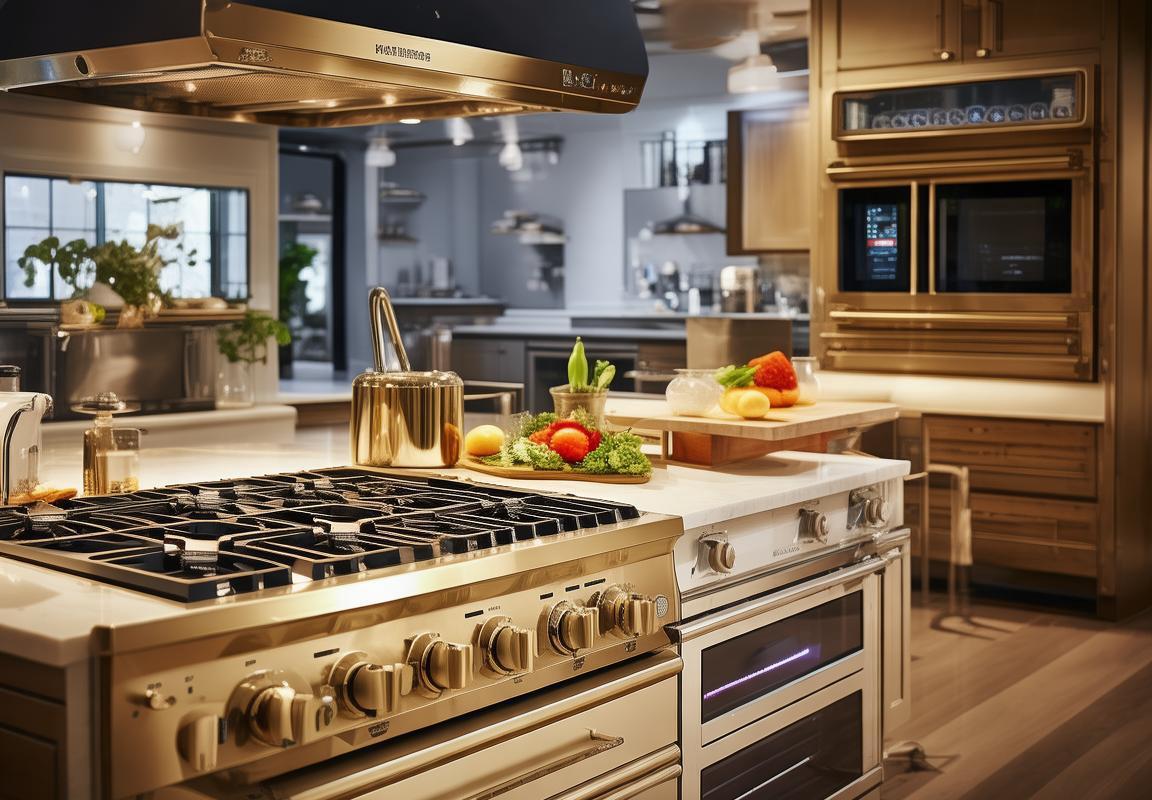
VI.PaniniPressPrivateLabelFactories:ADeepDive
In the competitive landscape of kitchen appliances, the rise of private label factories has reshaped the industry, particularly for products like the panini press. These factories play a pivotal role in the market, offering a range of benefits that cater to both retailers and brand owners. Let’s delve into the intricacies of these factories and their impact on the market.
Private label factories often operate with a keen understanding of market trends and consumer preferences. They specialize in producing custom-designed kitchen appliances, including panini presses, which can be tailored to meet specific brand identities and customer expectations. This customization is a cornerstone of their appeal, as it allows for a unique product offering that stands out on the shelves.
The process begins with market research, where these factories gather insights into consumer needs and preferences. This research informs the design and features of the panini presses, ensuring that they align with the latest trends and technological advancements. The ability to quickly adapt to market changes is a significant advantage that private label factories bring to the table.
One of the most compelling aspects of working with private label factories is the control over the manufacturing process. From choosing the materials to selecting the manufacturing techniques, these factories offer a high degree of flexibility. This control is crucial for brand owners looking to establish a strong market presence with a product that resonates with their target audience.
Quality assurance is another critical area where private label factories excel. They maintain stringent quality control measures to ensure that each panini press meets the highest standards. This commitment to quality is essential for building trust with consumers and fostering brand loyalty.
The efficiency of private label factories is also noteworthy. They often operate on a large scale, which allows for economies of scale in production. This efficiency translates into cost savings for retailers and brand owners, as well as shorter lead times. The ability to produce and deliver products quickly is particularly beneficial in the fast-paced kitchen appliances market.
Moreover, private label factories are adept at managing inventory and supply chain logistics. They can handle bulk orders, manage stock levels, and ensure that products are delivered on time. This streamlined approach minimizes the risks associated with inventory management, such as overstocking or stockouts.
When it comes to design, private label factories offer a wide array of options. They can incorporate various functionalities into the panini press, such as adjustable heat settings, non-stick surfaces, and easy-to-clean features. This versatility allows for a diverse range of products that cater to different consumer segments, from the casual home chef to the professional baker.
In addition to the manufacturing aspect, private label factories often provide comprehensive services that go beyond the production of the panini press. They can assist with packaging design, branding, and even marketing strategies. This holistic approach ensures that the final product is not just a high-quality appliance but also a brand experience that engages consumers.
Another key advantage of working with private label factories is the potential for exclusive product offerings. Retailers and brand owners can collaborate closely with these factories to create unique products that are not available from other manufacturers. This exclusivity can be a significant differentiator in a crowded market.
The environmental impact of kitchen appliances is also a growing concern. Many private label factories are increasingly focusing on sustainability, offering eco-friendly materials and energy-efficient designs. This not only appeals to environmentally conscious consumers but also positions the brand as a responsible corporate citizen.
Lastly, the collaboration between private label factories and retailers or brand owners often involves a strong focus on innovation. These factories are often at the forefront of technological advancements in kitchen appliances, and they are eager to incorporate new features and functionalities into their products. This commitment to innovation keeps the market dynamic and ensures that the panini press remains a sought-after item.
In conclusion, the role of private label factories in the panini press market is multifaceted. From customization and quality control to efficiency and sustainability, these factories offer a comprehensive solution that supports the growth and success of kitchen appliance brands. Their ability to adapt to market demands and deliver high-quality, innovative products makes them an invaluable partner in the competitive world of kitchen appliances.

VII.CaseStudies:SuccessfulPrivateLabelPaniniPresses
In the competitive landscape of kitchen appliances, private label panini presses have emerged as a compelling option for retailers and brand owners alike. Let’s delve into some case studies that showcase the success of private label panini presses.
A family-owned supermarket chain in the Midwest has seen a surge in sales of their private label panini presses. The sleek design and affordable price point have caught the eye of budget-conscious consumers, who appreciate the convenience of a high-quality appliance without the premium brand cost.
A gourmet grocery store in New York City has taken a different approach with their private label panini press. They’ve collaborated with a local artisan to create a unique, high-end model that appeals to foodies and those looking for a gourmet cooking experience at home. The result is a beautifully crafted panini press that has become a staple in the store’s gourmet section.
A major online retailer has launched a line of eco-friendly private label panini presses that have resonated with environmentally conscious consumers. Made from recycled materials and boasting energy-efficient features, these presses have not only contributed to the retailer’s green initiative but have also become a popular choice among eco-aware shoppers.
A well-known discount store has leveraged the popularity of the panini press by offering a range of models at various price points. Their value-packed options have become go-to gifts for graduates and newlyweds, as well as a practical addition to the kitchen for those on a tight budget.
A specialty kitchenware store in the South has introduced a line of vintage-inspired private label panini presses. The retro designs have struck a chord with customers who appreciate the charm of yesteryear, and the presses have become a must-have item for collectors and those looking to add a touch of nostalgia to their kitchen.
A health-focused supermarket chain has developed a private label panini press designed for those following a gluten-free diet. The appliance features a non-stick surface that is free from harmful chemicals, making it an ideal choice for customers looking to enjoy their favorite panini without compromising on health.
A tech-savvy retailer has integrated smart features into their private label panini presses, appealing to the tech-savvy consumer. With programmable settings and Bluetooth connectivity, these presses allow users to control their cooking experience from their smartphone, offering a blend of convenience and innovation.
These case studies highlight the diverse strategies that private label panini press manufacturers have employed to cater to different market segments. From budget-friendly options to high-end, eco-friendly, and health-conscious designs, the private label market has shown remarkable adaptability and creativity. Each success story serves as a testament to the potential of private label products in the kitchen appliances industry.
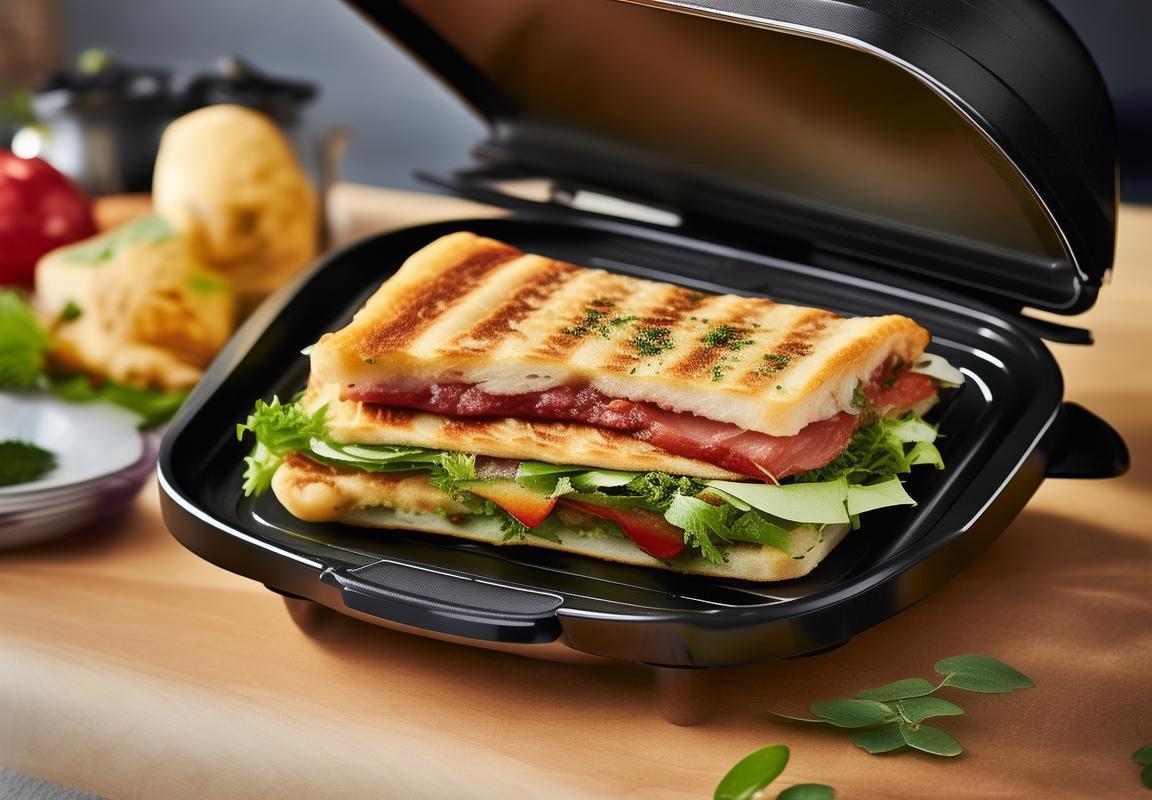
VIII.FutureOutlookforPrivateLabelPaniniPressFactories
In the ever-evolving kitchen appliances market, the rise of private label panini presses has been a testament to the demand for unique and specialized products. As we look ahead, several factors are shaping the future outlook for these factories, promising both challenges and opportunities.
The growing popularity of health-conscious eating habits has led to a surge in demand for compact and efficient appliances that can cater to diverse culinary preferences. This shift has created a fertile ground for private label panini presses, which offer a customizable solution for retailers looking to differentiate their product offerings.
One key trend is the emphasis on sustainability. Consumers are increasingly seeking eco-friendly options, and private label factories are responding by producing panini presses made from recycled materials and designed for energy efficiency. This not only aligns with consumer values but also opens up new markets for environmentally conscious shoppers.
The integration of smart technology is another area where private label panini presses are poised to make significant strides. As appliances become more connected, there’s a growing expectation for smart features that can enhance the cooking experience. Factories are investing in research and development to incorporate IoT capabilities into their panini presses, allowing users to control their devices remotely and track usage for better energy management.
Customization remains a cornerstone of the private label market. Factories are not just producing standard panini presses; they are offering a range of options, from different materials and sizes to various functionalities like adjustable heat settings and non-stick surfaces. This level of personalization caters to niche markets and allows retailers to tailor their products to specific customer segments.
Globalization has also played a role in shaping the future of private label panini press factories. With the ability to source materials and components from around the world, these factories can offer competitive pricing while maintaining high-quality standards. This has expanded their reach, allowing them to cater to international markets with varying preferences and regulations.
However, challenges persist. The competitive landscape is fierce, with established brands constantly innovating and launching new products. Private label factories must stay ahead by continuously improving their offerings and adapting to market trends. This requires a robust supply chain and the agility to respond quickly to changes in consumer demand.
Moreover, the rise of e-commerce has changed the way products are sold. Private label panini press factories need to ensure their products are not only of high quality but also packaged and marketed effectively to stand out in an online marketplace where customers can easily compare options.
Regulatory compliance is another critical area. Different regions have specific safety and environmental standards that private label factories must adhere to. This means constant vigilance and investment in quality control to ensure that products meet these requirements without compromising on design or functionality.
Innovation in marketing and distribution channels is also crucial. Private label factories must explore new ways to reach consumers, whether through social media campaigns, influencer partnerships, or direct-to-consumer sales models. This requires a deep understanding of consumer behavior and the ability to leverage digital marketing effectively.
As we look to the future, the private label panini press market is expected to grow, driven by the demand for unique, sustainable, and smart kitchen appliances. Factories that can navigate these challenges and capitalize on emerging opportunities will be well-positioned to thrive in this dynamic industry. The key will be adaptability, innovation, and a relentless focus on customer satisfaction.
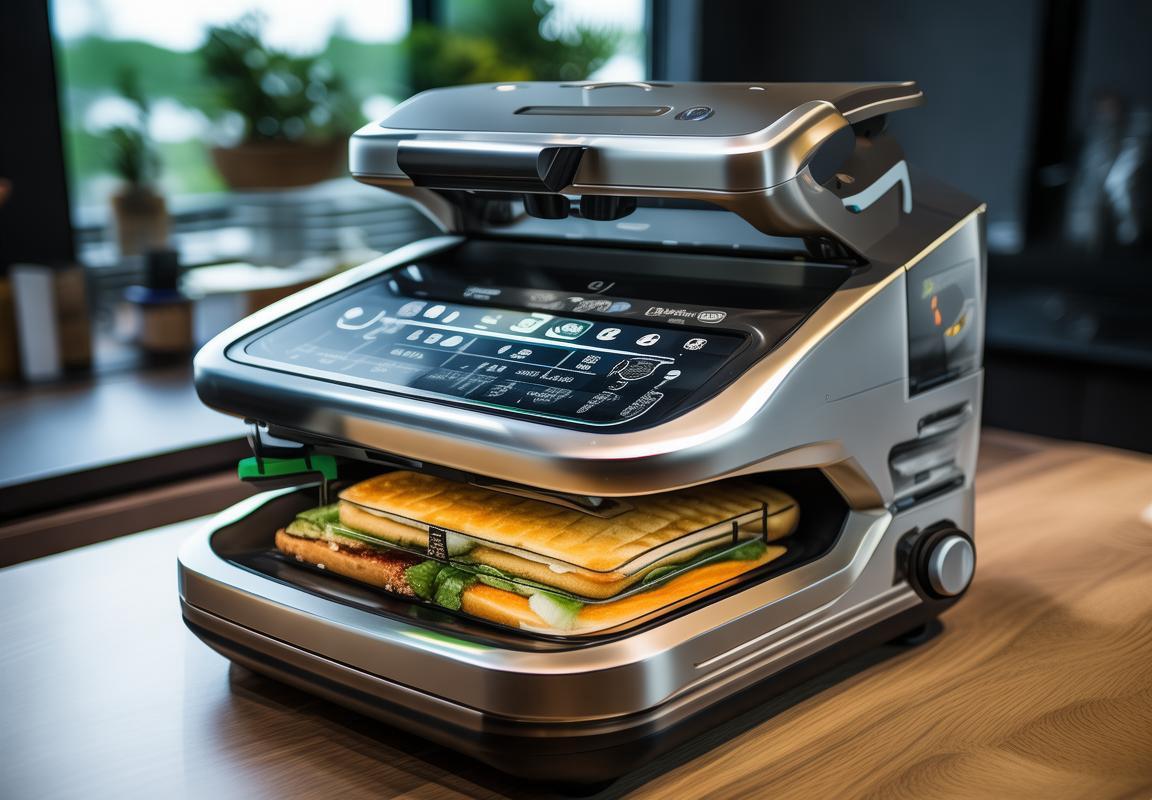
IX.Conclusion
In reflecting on the journey of private label Panini press factories, one can’t help but feel a sense of achievement. These factories have not only capitalized on the growing demand for Panini presses but have also carved out a niche in the competitive kitchen appliances market. As we look back, several key trends and strategies stand out, shaping the future of these factories.
The evolution of technology has been a game-changer for private label Panini press factories. By integrating advanced manufacturing techniques and quality control measures, these factories have been able to produce high-quality, reliable products that meet the stringent requirements of consumers and retailers alike. This technological edge has not only enhanced their competitive position but has also allowed them to cater to a wider range of customers, from budget-conscious shoppers to those seeking premium features.
Innovation has been a cornerstone for private label Panini press factories. The industry has seen a surge in new designs, functionalities, and materials, all aimed at providing consumers with more versatile and user-friendly appliances. From non-stick surfaces to adjustable temperature controls, these innovations have not only made Panini presses more appealing but have also expanded their use beyond just making sandwiches.
The rise of e-commerce has significantly impacted private label Panini press factories. With more consumers turning to online shopping, these factories have had to adapt by offering efficient and cost-effective shipping solutions. This shift has also necessitated a stronger focus on packaging and branding, as online retailers rely heavily on these elements to attract customers.
The importance of sustainability cannot be overstated. Private label Panini press factories have increasingly embraced eco-friendly practices, from sourcing sustainable materials to reducing energy consumption during production. This commitment to sustainability not only aligns with consumer values but also opens up new markets, especially in regions where environmental consciousness is a key purchasing factor.
Collaborations with local artisans and suppliers have also become a hallmark of successful private label Panini press factories. By partnering with local businesses, these factories are not only supporting local economies but also gaining access to unique designs and materials that set their products apart from the competition.
In the realm of marketing, private label Panini press factories have leveraged social media and influencer partnerships to reach a broader audience. By showcasing the versatility and ease of use of their products, these factories have been able to create a strong brand presence and build trust with consumers.
As we gaze into the future, it’s clear that private label Panini press factories will continue to evolve. The market will likely see an increased focus on smart appliances, with features like connectivity and remote control capabilities becoming more prevalent. Additionally, there will be a greater emphasis on customization, allowing consumers to choose specific features and designs that cater to their individual needs.
In conclusion, the journey of private label Panini press factories is a testament to the power of innovation, sustainability, and strategic partnerships. These factories have navigated the complexities of the kitchen appliances market with a keen eye for consumer trends and a commitment to quality. As the industry continues to grow, these factories are well-positioned to lead the way, delivering innovative and eco-conscious products that resonate with consumers worldwide.